‘The Whaler Boy’ explores the challenges of coming of age
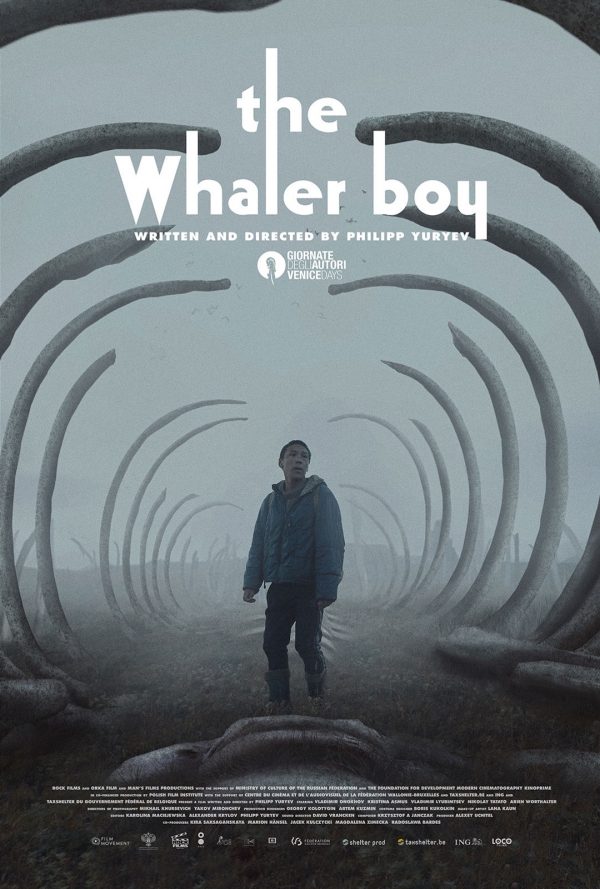
“The Whaler Boy” (“Kitoboy”) (2020 production, 2022 release). Cast: Vladimir Onokhov, Kristina Asmus, Vladimir Lyubimtsev, Nikolay Tatato, Arieh Worthalter, Maria Chuprinskaia, Ankas Aimetgirgin, Evgeny Ayanto, Ivan Tynau, Zakhar Vykvytke. Director: Philipp Yuryev. Screenplay: Philipp Yuryev. Web site. Trailer.
Coming of age is a singularly human process that virtually everyone goes through, no matter where one lives and under what conditions. It’s a time of wonder, exploration and challenge as we examine and seek to understand the world in which we find ourselves. It’s an odyssey that’s generally as diverse as the various surroundings in which we reside. Yet there are also elements quite common to each individual’s particular experience – triumphs, disappointments, disillusionments and personal awakenings. And all of those experiences are explored in the new Russian comedy-drama, “The Whaler Boy” (“Kitoboy”).
Fifteen-year-old Lyoshka (Vladimir Onokhov) is coming of age in the middle of nowhere. He lives with his elderly grandfather (Nikolay Tatato) in a whale hunting village in the Chukotka region of eastern Siberia along the shores of the Bering Strait. When he’s not engaged in the hunt and performing other everyday chores, he spends his time hanging out with his best friend, Kolyan (Vladimir Lyubimtsev), but there’s precious little to relieve the incessant tedium – that is, until the arrival of something eye-opening: the internet. And it’s not long before Lyoshka and Kolyan figure out how to put it to use in a way that fittingly suits their stage of life.
Like many of the young men in this remote community, which has a pronounced dearth of women, Lyoshka and Kolyan are typical of the village’s red-blooded sex-starved males. They have virtually no contact with the opposite sex. However, with the arrival of the internet, that all changes when Lyoshka, Kolyan and their pals discover the world of erotic video chat sites, most of which are based across the strait in the US. And, like many of those in their peer group, Lyoshka and Kolyan are absolutely captivated with what they see as their raging hormones flourish in the flickering light of their computer screens.
Lyoshka is particularly smitten with a woman who goes by the screen name HollySweet999 (Kristina Asmus), a flirtatious tease with whom he naïvely believes he’s made a genuine connection. He comes to think of her as his girlfriend and takes steps as chivalrous as attempting to learn English so he can communicate with her more effectively. Lyoshka even feels wracked with guilt when his whaling crew foreman (Ankas Aimetgirgin) arranges a visit by a sex worker (Maria Chuprinskaia) for him, an incident that prompts him to believe he’s cheated on his virtual romantic interest.
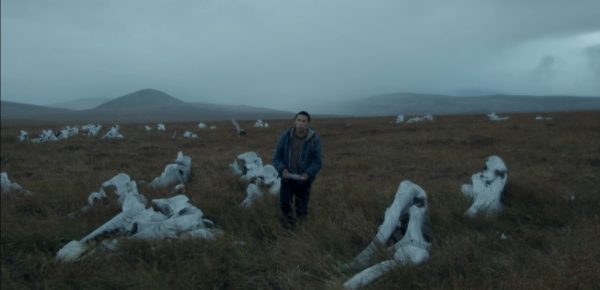
But, as Lyoshka’s infatuation with HollySweet intensifies, circumstances start taking a more obsessive turn. He truly believes he has a future with the woman on the computer monitor, despite the admonitions offered by the likes of Kolyan and others, who try to convince Lyoshka that sex cam sites are nothing more than venues for erotic fantasies, a hard truth he doesn’t want to hear. Indeed, as he digs in his heels, he even grows jealous when other users engage in private sessions with the object of his desire. Lyoshka soon asks himself, can he realistically settle for a virtual relationship with Holly, or must he attempt to seek out something more by charging valiantly after her?
Given that his love interest resides in America – a mere 86 kilometers across the Bering Strait – Lyoshka seriously contemplates making the crossing to find her. It’s a risky proposition in many regards – weather conditions, sea currents, and, perhaps most of all, the presence of US Border Patrol contingents that routinely navigate the waters in search of poachers and would-be immigrants. It’s also an unrealistic undertaking given that Lyoshka has no clue how far away Holly actually lives. She’s not just across the water in Alaska as he seems to believe; she works out of Detroit, not an easily accessible location for someone who would have to travel there on foot.
However, despite these obstacles, circumstances soon force Lyoshka’s hand. An unanticipated incident compels him to flee his village, and he impulsively decides to escape by attempting a flight to America in a stolen whaling boat. It’s a journey filled with potential perils, such as his vessel’s engine failure, an emergency beach landing on an island in the middle of the strait, a run-in with a trio of poachers (Evgeny Ayanto, Ivan Tynau, Zakhar Vykvytke) and a tense encounter with a Border Patrol agent (Arieh Worthalter) in which the language barrier could conceivably spell disaster. But, despite the challenges posed by these dangers, they’re nothing compared to what follows as Lyoshka’s experience turns into an ordeal with even more unexpected elements, some of them downright surreal.
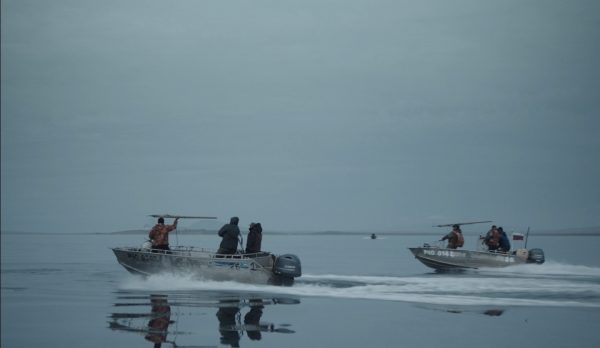
Will Lyoshka find his way to America and fall into the arms of his true love? Or will he be thoroughly disillusioned by his experience? And how will these developments affect his coming of age process? That’s what awaits him as his story unfolds, one that’s sure to present him with challenges, adventures and even a few surprises. But, then, isn’t that what coming of age entails for most of us?
Lyoshka’s at that point in his life when opportunities are opening up for him and new experiences are potentially around every corner. That’s especially true with the arrival of the internet, which presents him with a world of possibilities all by itself. There’s so much, in fact, that it can be overwhelming, making it difficult to choose. It can also lead to cloudy judgment and the formation of distorted beliefs, which, in turn, can yield an imprecise assessment of one’s reality. That’s due to the conscious creation process, the philosophy that maintains we draw upon these resources in shaping the nature of our existence.
Given Lyoshka’s tender age and limited life experience, it’s understandable that his interpretation of what’s presented to him in cyberspace may be off the mark, and, the more he buys into that misleading view, the more firmly it becomes entrenched in his beliefs and subsequently reflected in his world. By falsely assuming that Holly is his true love and in light of what she does for a living, the lad is setting himself up for a hard fall when the truth is finally revealed. But that illustrates what the power of our beliefs can do, even if the outcome is not exactly in line with our hopes or ultimately to our liking. And, disappointing though that may be, that’s one of the pitfalls that can be found in the coming of age process – or in the practice of conscious creation.
In all likelihood, Lyoshka has probably never heard of this philosophy or even how it works. However, given that it’s associated with learning how reality functions – in itself a key element of the coming of age process – this is something he will have to go through to get a handle on how our (and his) existence unfolds. In essence, it’s often experienced as a process of trial and error, figuring out what works and what doesn’t and helping us hone our beliefs to grasp the nature and composition of our reality. This forces us to take a hard look at what constitutes our existence and rid ourselves of the beliefs that don’t jibe with our understanding of it. This often involves the shattering of illusions, the development of discernment and the birth of wisdom. It may not be an easy process, but it’s one that can aid us tremendously in these areas for the rest of our lives.
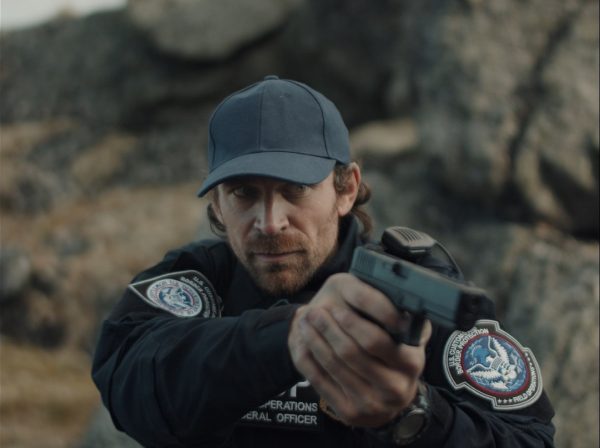
This is what Lyoshka is learning through this experience, difficult though it may be at times. In fact, the experience can be so disillusioning that it may seem surreal, something Lyoshka goes through firsthand. When he sees that the cherished dreams we hold for our reality may be just as illusory at what we’re directly experiencing, we might have trouble separating actuality from imagination, a distinction that we must ultimately sort out to avoid becoming prisoners of wishful thinking.
In Lyoshka’s case, his misconceptions need to be distinguished on multiple fronts. His trumped-up infatuation with Holly is perhaps the most obvious of these illusions, but he holds on to them in other areas as well. For example, like many of the other villagers, he has dreams of going to America, a land that he and they believe is characterized by omnipresent skyscrapers, McDonalds on every corner and supermodels as far as the eye can see, elements supposedly present even just across the water in Alaska. But, if he and they were to experience the reality of America, should they ever visit there, how would they react upon witnessing what’s actually there? What would that do to their beliefs and conceptions of America in particular and, potentially, existence in general? Wouldn’t they be shocked to find that what they come upon, at least initially, actually isn’t much different from what they’re accustomed to in Chukotka?
The bottom line in this is that coming of age is, in many ways, a wake-up call to the nature of life. And, in many ways, Lyoshka’s experience in understanding his world parallels what many of us go through when it comes to gaining a greater appreciation of how reality fundamentally works. The revelations we realize in this regard are undoubtedly just as profound as those that Lyoshka experiences when it comes to the world he lives in. In that sense, then, it should become apparent that coming of age is not necessarily something that’s limited to our adolescence. It’s a process that arguably repeats itself, almost in a cyclical nature, as our beings undergo various degrees of maturation and development in our understanding of the way life – and reality – operate. And, if we go about it correctly, it should prove to be an adventure full of joy, wonder and fun that provides us with a fulfilling template for our existence.
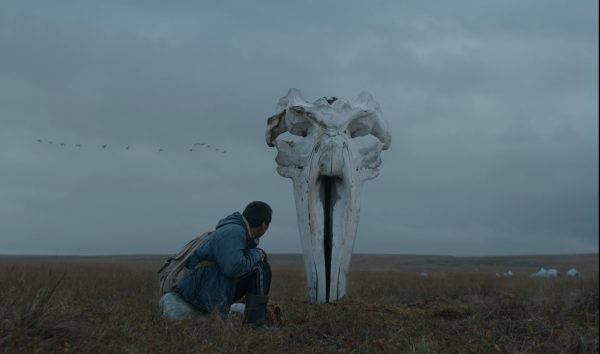
In bringing this story to life, writer-director Phillip Yuryev’s debut feature skillfully blends aspects of multiple genres and narrative formats, including elements of road trip tales, cross-cultural stories and personal transformations, along with adventures in sexual awakening, loss of innocence and rediscovered gratitude. The picture’s expertly penned script captures and conveys a variety of moods, from refreshingly whimsical to delightfully humorous to deadly serious and even deftly surreal, making for a viewing experience that’s always engaging, never dull and generally free of flotsam. In tandem with this, though, sensitive viewers should be aware that the director rarely holds anything back, including rather explicit depictions of sexuality and graphic footage of an actual whale hunt, story elements that some might find offensive or disturbing. There is also a slight tendency for the story to drag a bit toward the end. These matters aside, however, “The Whaler Boy” is an inventive take on a formula format that could easily have become trite, clichéd and melodramatic if left in lesser skilled hands, and, thankfully, that’s not the case here. This enjoyable little-known gem is available for streaming online.
Whether we’re coming to terms with life as an inexperienced teenager or as an evolving soul at any age, the process is in many ways the same. In either instance, the goal is comparable – determining what we make of the experience. The keys in this, of course, are what we put into the process (namely, the beliefs that fuel it) and then subsequently analyzing what we’ve created with them. And, if handled correctly, we just might come up with something that’s noteworthy and satisfying – and that exhibits an ever-increasing understanding and appreciation of the nature of reality.
Copyright © 2022, by Brent Marchant. All rights reserved.



